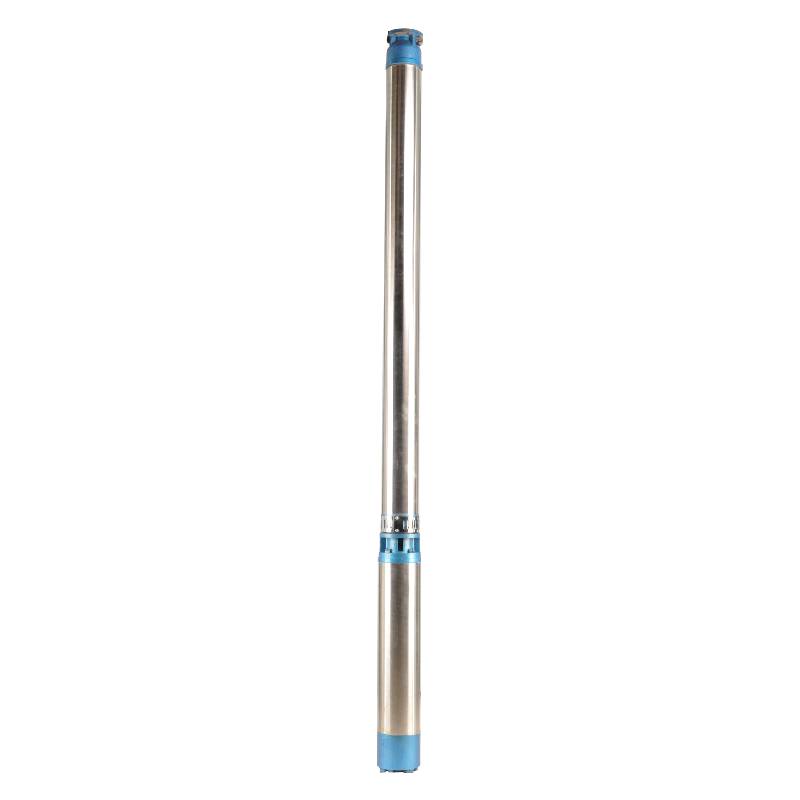Sep . 27, 2024 19:23 Back to list
Submersible Centrifugal Pumps for Efficient Fluid Transfer in Diverse Applications
Submersible Centrifugal Pumps An Overview
Submersible centrifugal pumps are vital components used in various industrial and municipal applications, particularly for fluid transfer in situations where the water source or liquid must be pumped from below the surface. As the name suggests, these pumps are designed to operate while submerged in the fluid being pumped, making them ideal for applications in wells, boreholes, and other deep-water settings. This article delves into the functionality, types, advantages, and applications of submersible centrifugal pumps.
How Submersible Centrifugal Pumps Work
At its core, a submersible centrifugal pump consists of a motor and an impeller, both of which are housed in a sealed casing. The motor typically sits at the top of the pump unit, while the impeller, which is responsible for moving the fluid, is at the bottom. When the motor rotates, the impeller spins rapidly, creating a centrifugal force that draws fluid into the pump through an inlet port. This fluid is then expelled through an outlet port, often located at the top of the pump, creating flow and pressure in the desired direction.
The design of submersible pumps allows them to operate efficiently while submerged, reducing the risk of cavitation and ensuring optimal performance. Because they are placed directly in the fluid, these pumps do not require additional priming, which is often necessary for above-ground pumps. This self-priming capability is a significant advantage, as it minimizes maintenance requirements and increases operational reliability.
Types of Submersible Pumps
Submersible pumps can be categorized into various types based on their design and application. The most common type is the submersible centrifugal pump, which is favored for its efficiency and versatility. However, there are also other types, including
1. Vortex Submersible Pumps These pumps are designed to handle fluids with solids or debris, making them suitable for applications in wastewater management. 2. Screw Submersible Pumps These pumps utilize screw rotors to move fluid, which results in a different flow mechanism, generally offering better efficiency in certain applications.
submersible centrifugal pump

Advantages of Submersible Centrifugal Pumps
Submersible centrifugal pumps offer several advantages that make them popular in various industries
- Energy Efficiency By operating underwater and eliminating the need for priming systems, these pumps require less energy to function. - Reduced Noise Levels Submerged pumps tend to produce less noise than surface-mounted pumps, making them suitable for residential or quiet areas. - Compact Design Their compact size allows for installation in limited spaces, making them ideal for well installations or in tight environments. - Reliable Performance With fewer mechanical components exposed to the elements, submersible pumps are less likely to incur damage from external factors, leading to longer service life and lower maintenance costs.
Applications of Submersible Centrifugal Pumps
These pumps are extensively used in a variety of applications, including
- Water Supply Systems They are commonly used for supplying water from boreholes to residential and commercial properties. - Wastewater Management Submersible pumps are essential in sewage and wastewater treatment facilities to transfer sewage to treatment plants.
- Irrigation Systems Agricultural applications employ submersible pumps for irrigation, especially in areas where surface water is not readily available.
- Dewatering Operations In construction sites or mining, submersible pumps are employed to remove unwanted water and maintain dry working conditions.
In conclusion, submersible centrifugal pumps are indispensable tools across multiple sectors, providing an efficient means to transport fluids from below the surface. With their unique design, energy efficiency, and reliable performance, they serve a wide range of applications, from residential water supply to complex industrial processes. Understanding their functionality and advantages can help users select the right pump for their specific needs, ultimately enhancing operational efficiency and productivity.
-
Submersible Water Pump: The Efficient 'Power Pioneer' of the Underwater World
NewsJul.01,2025
-
Submersible Pond Pump: The Hidden Guardian of Water Landscape Ecology
NewsJul.01,2025
-
Stainless Well Pump: A Reliable and Durable Pumping Main Force
NewsJul.01,2025
-
Stainless Steel Submersible Pump: An Efficient and Versatile Tool for Underwater Operations
NewsJul.01,2025
-
Deep Well Submersible Pump: An Efficient 'Sucker' of Groundwater Sources
NewsJul.01,2025
-
Deep Water Well Pump: An Efficient 'Sucker' of Groundwater Sources
NewsJul.01,2025
-
 Submersible Water Pump: The Efficient 'Power Pioneer' of the Underwater WorldIn the field of hydraulic equipment, the Submersible Water Pump has become the core equipment for underwater operations and water resource transportation due to its unique design and excellent performance.Detail
Submersible Water Pump: The Efficient 'Power Pioneer' of the Underwater WorldIn the field of hydraulic equipment, the Submersible Water Pump has become the core equipment for underwater operations and water resource transportation due to its unique design and excellent performance.Detail -
 Submersible Pond Pump: The Hidden Guardian of Water Landscape EcologyIn courtyard landscapes, ecological ponds, and even small-scale water conservancy projects, there is a silent yet indispensable equipment - the Submersible Pond Pump.Detail
Submersible Pond Pump: The Hidden Guardian of Water Landscape EcologyIn courtyard landscapes, ecological ponds, and even small-scale water conservancy projects, there is a silent yet indispensable equipment - the Submersible Pond Pump.Detail -
 Stainless Well Pump: A Reliable and Durable Pumping Main ForceIn the field of water resource transportation, Stainless Well Pump has become the core equipment for various pumping scenarios with its excellent performance and reliable quality.Detail
Stainless Well Pump: A Reliable and Durable Pumping Main ForceIn the field of water resource transportation, Stainless Well Pump has become the core equipment for various pumping scenarios with its excellent performance and reliable quality.Detail
